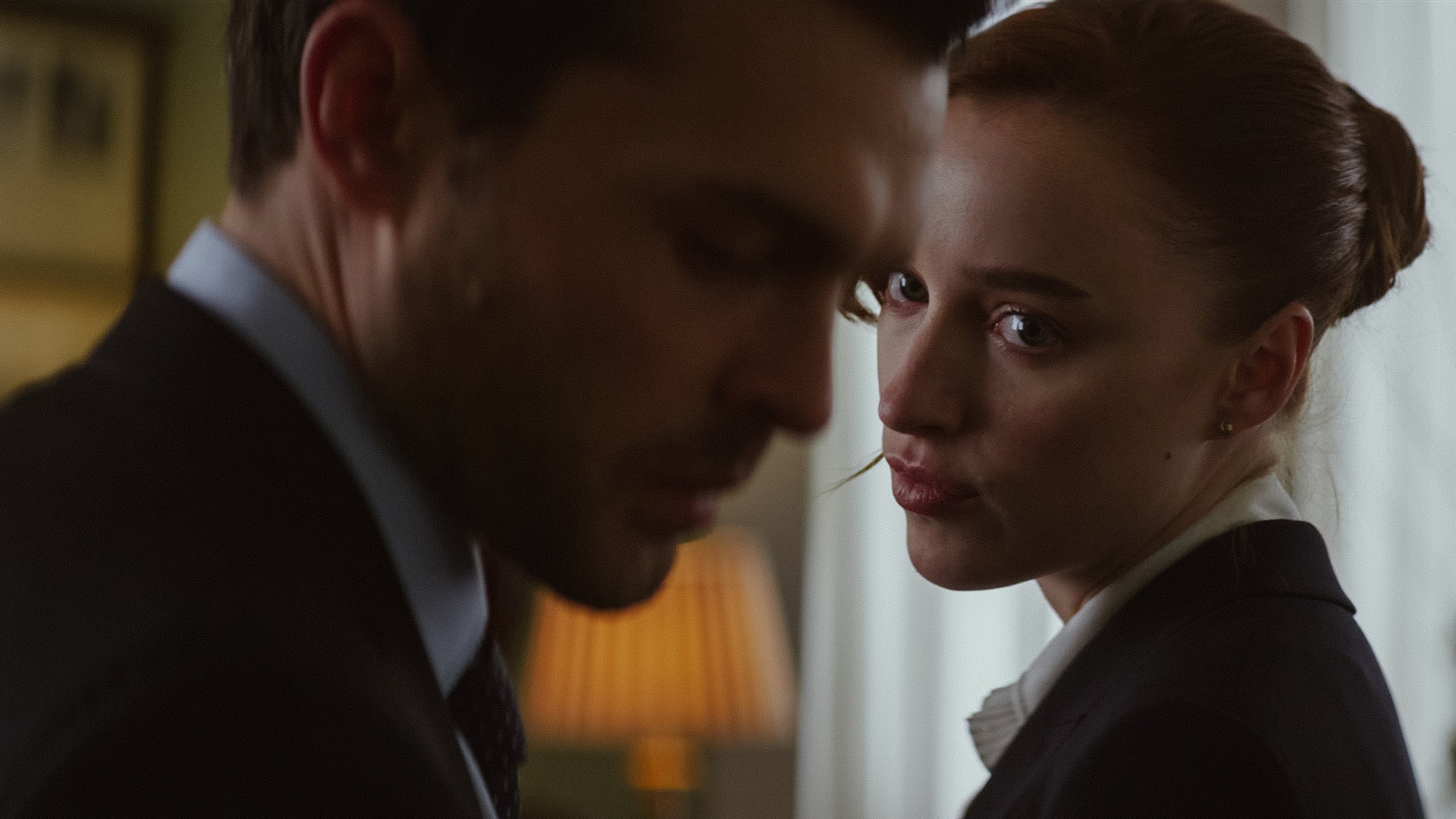SUNDANCE '23: Composer Brian McOmber and the Power Struggle of 'Fair Play'
Fair Play emerged from Sundance as one of the top tier films in terms of buzz. Part of the hype can be attributed to the massive $20 million sale to Netflix, but another part should (rightfully) be about the film itself. Fair Play is Chloe Domont’s feature-length directorial debut about the power dynamics of Wall Street.
Brian McOmber is responsible for the score that supports the tension-filled Fair Play. He’s no stranger to the world of indie film and had three separate projects at Sundance this year. His journey to today started with a $100 drum set his parents bought for him when he was eleven years old that he “played all the time.” Ever since then, he’s played music without a formal musical background.
Film didn’t come into the equation until college. McOmber’s friends would show him all kinds of films, but even now he doesn’t consider himself a film buff. He’s a music buff through and through. “I was just into music,” he explains. “I think I’m more of a music buff who really likes putting sounds to images…I think because I don’t have a formal music training background that I’m interested more in percussion and tambors and textures of music rather than songwriting.”
That much is evident in his Fair Play score, but also in previous work like It Comes at Night and Blow the Man Down. McOmber’s use of percussion effortlessly builds tension throughout these scores. All of these films are made or broken on their ability to sustain this tension, and Domont was adamant that McOmber use the score for Fair Play to up the anxiety.
McOmber’s desire to write the music for Fair Play hinged entirely on Domont. When asked what drew him to the project, his answer was immediate: “Chloe.”
“I don’t know that I would’ve done this film if it were another director,” McOmber explains. “After reading the script and just seeing how bold it was and how far she was willing to go with it, I wanted to have a conversation with her. I wanted to have a conversation with her and see how she was going to do these pretty out there ideas that she wanted to do. And how far she was willing to take it. She seemed really comfortable and really unapologetic. She had an incredibly clear vision for the film. That's what got me excited.”
“And it proved correct!” McOmber laughs. “There was one instance at Sundance of a heckler, somebody that shouted over her. This particular individual was not thrilled about the ending of the movie and it was great to see how Chloe handled that. She handled it, she was like, ‘no, I knew exactly what I wanted.’ She didn’t feel like she needed to apologize for what the film was to her.”
To create this anxious score, McOmber took things to an extreme. “The second I put more than two pitches together it became, in her (Domot) mind, melodic,” he says, “and she immediately had an aversion to it. She wanted everything to sound like a ticking time bomb. She wanted everything to sound like anxiety feels.”
So, instead of a straight melody, McOmber took a piece of steel and smacked a cello. “I really damaged this cello,” he jokes. “I layered together the sounds of me striking things pretty aggressively.”
The final result is something unnerving to match the film’s stressful feeling. “Chloe talked about wanting it to sting. I want to feel the stings, the pangs, the sort of hurt when someone says something cruel to you or does something that hurts you…if there was a musical way to describe with sounds what it feels like to be pinched emotionally or slapped emotionally.”


